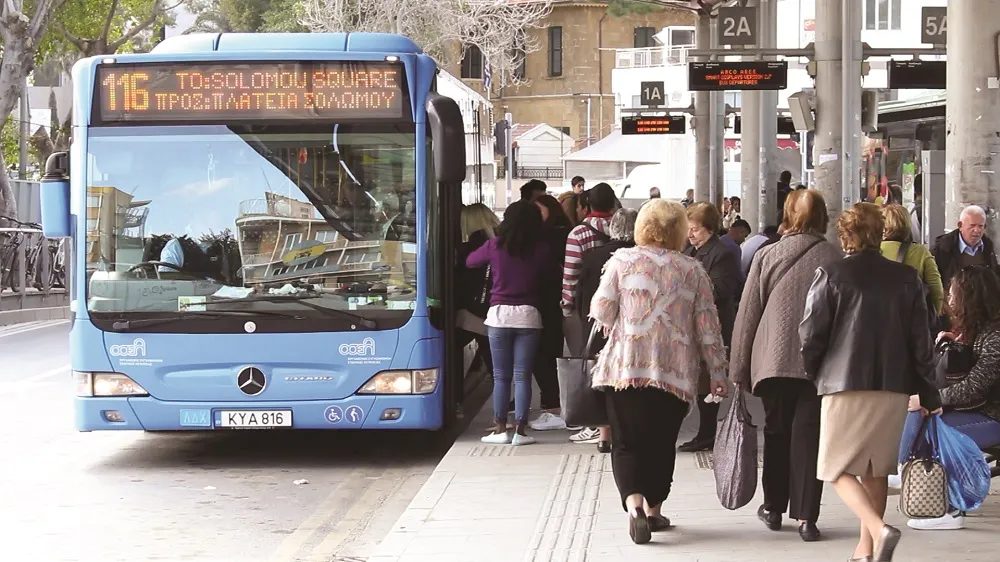London's commuters will be able to use their mobile phones and bank cards for travel across the city, if Transport for London's (TfL) plans come to fruition. Thousands of London bus users already pay their fares using contactless bank cards instead of TfL Oyster cards, which have been widely used over the past decade. Users pay different charges for different London Underground zones and for train travel, so TfL has to decide on suitable payment mechanisms, and could drive the widespread adoption of systems
April 4, 2013
Read time: 3 mins
London's commuters will be able to use their mobile phones and bank cards for travel across the city, if 1466 Transport for London's (TfL) plans come to fruition.
Thousands of London bus users already pay their fares using contactless bank cards instead of TfL Oyster cards, which have been widely used over the past decade. Users pay different charges for different London Underground zones and for train travel, so TfL has to decide on suitable payment mechanisms, and could drive the widespread adoption of systems such as contactless EMV (Europay,1756 MasterCard and 1758 Visa) bank cards, Barclaycard's PayTag stickers, and the NFC (Near Field Communication) system already built into many smartphones.
According to Dave Birch, a digital money expert from5260 Consult Hyperion, TfL's gates (or barriers) can already work with NFC phones, but the system is not currently switched on.
Consult Hyperion has been advising TfL on its strategy and implementation. It also acts as a consultancy for many of the leading suppliers of payment systems, including Barclaycard, MasterCard and Visa.
Birch says travellers will probably be able to use bank cards for tube travel by the end of this year. This will be possible thanks to back-end processing that limits each user's total spending on TfL tickets to the cost of the applicable one-day TravelCard. Oyster cards already do this, but they only work in London.
"Ideally, what you want is one national card like they have in the Netherlands," says Birch. "That's very difficult to do in the UK because you have so many [rail] franchises and so many ticket prices."
With complex train fares, which often extend beyond London, users will be able to buy tickets using their smartphones. Birch says: "The idea is terrific, but if I buy the ticket on my phone, I still have to go to the station to collect my [paper] ticket." This is needed to get through the station barriers and onto the train. He envisages a system where people can use their mobile phones as tickets, without needing paper versions.
Another option is Barclaycard's PayTag, which is a Visa card that comes in the form of a sticker that you stick to your phone and solves the problem that not all smartphones support NFC. It works without PINs with today's contactless card readers, including the ones used on London buses, for amounts up to £20.
Since they are actually bank cards, tags don't need battery power, and will continue to work even if the phone is dead.
Thousands of London bus users already pay their fares using contactless bank cards instead of TfL Oyster cards, which have been widely used over the past decade. Users pay different charges for different London Underground zones and for train travel, so TfL has to decide on suitable payment mechanisms, and could drive the widespread adoption of systems such as contactless EMV (Europay,
According to Dave Birch, a digital money expert from
Consult Hyperion has been advising TfL on its strategy and implementation. It also acts as a consultancy for many of the leading suppliers of payment systems, including Barclaycard, MasterCard and Visa.
Birch says travellers will probably be able to use bank cards for tube travel by the end of this year. This will be possible thanks to back-end processing that limits each user's total spending on TfL tickets to the cost of the applicable one-day TravelCard. Oyster cards already do this, but they only work in London.
"Ideally, what you want is one national card like they have in the Netherlands," says Birch. "That's very difficult to do in the UK because you have so many [rail] franchises and so many ticket prices."
With complex train fares, which often extend beyond London, users will be able to buy tickets using their smartphones. Birch says: "The idea is terrific, but if I buy the ticket on my phone, I still have to go to the station to collect my [paper] ticket." This is needed to get through the station barriers and onto the train. He envisages a system where people can use their mobile phones as tickets, without needing paper versions.
Another option is Barclaycard's PayTag, which is a Visa card that comes in the form of a sticker that you stick to your phone and solves the problem that not all smartphones support NFC. It works without PINs with today's contactless card readers, including the ones used on London buses, for amounts up to £20.
Since they are actually bank cards, tags don't need battery power, and will continue to work even if the phone is dead.










